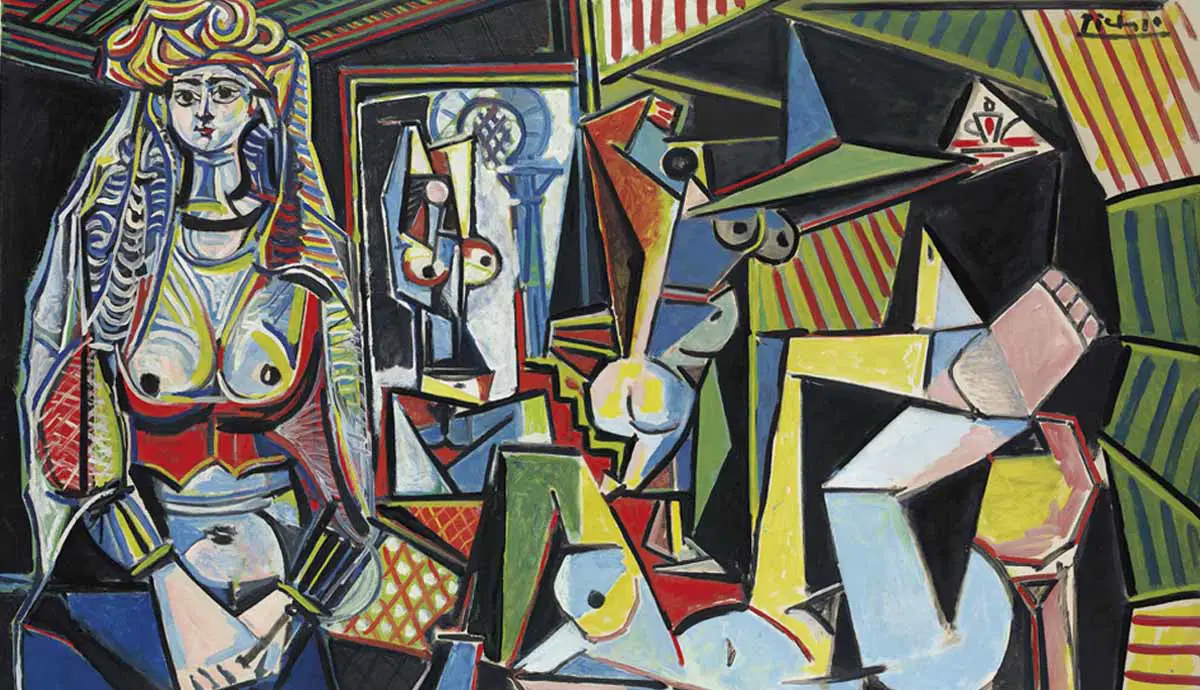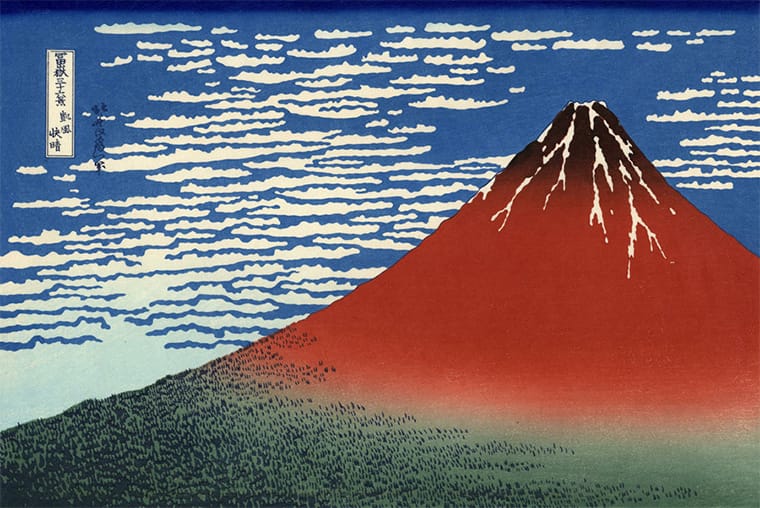The Power of Vision
Mirages, Fantasy and Leadership

“…‘Hey There!’
I raise my arms and shout, but that beckoning man was just a black rock. Everything is coming to life in the desert. I just tried to wake that sleeping Bedouin, and he turned into a black tree trunk. A tree trunk? A surprising presence here. I bend to examine it, and try to lift a broken branch: it’s made of marble! I straighten up and look around me; I see more black lumps of marble. An antediluvian forest, littering the ground with it’s broken columns.”
So writes Antoine de Saint-Exupery as his mirages grow in intensity while he casts about the Libyan Sahara in search of rescue. A pilot of Aeropostale mail company, he had crashed his single-engine Simoun on a plateau somewhere in the middle of the Libyan desert due to a thick fog bank.
Now he and his trusty navigator, Prevot, must walk hundreds of miles through one of the most hostile deserts in the world, with hardly any water or sustenance, so that they may live.
Spoiler alert - they do. After four days and hundreds of miles, with only some old coffee, scrounged dew, and a miraculous orange; they drop to the ground in utter exhaustion in front of a Bedouin. He feeds them water like camels, the only creatures truly suited to that inhospitable environ.
Though Saint-Expurey is an excellent adventure writer, this episode of extreme survival shines light on the incredible nascent capacity of the human psyche for vision; whether it be mirage, fantasy or leadership.
Just on the other side of our creature comforts and hum-drum routines lies an internal world that is waiting to burst forth, given the body has been deprived of its normality for long enough.
This is a faculty of paramount interest if one wishes to truly live a full life; the one that at the core of your soul and the reason you were born to live. And critically, this capacity for vision exists whether you like it a lot, it is independent of our conscious control in some ways.
If one ignores it, like a dog with an inattentive owner, it will chew its own leash. It will go hither and thither at its own behest. But if one can tap into the innate mechanisms that give it direction, it can be of immense beneficent vitality. One can utilize it to achieve excellence in accord with one’s potential.
I'm going to combine two concepts from Plato and Aristotle here so to further explore the nature of vision. The Golden Mean will allow us to ascertain where the domain of excellence lies, as well as it’s high and low corrupted versions. And excellence, as Plato rightly established, is the ultimate fruition of a being’s innate capacities to the fullest extent possible. Synonymous with this would be achieving it’s innate virtu. The contrast to the virtue of vision would be the denigration in mirages or it’s decadent manifestation in fantasy.
Let us look a bit closer at these corrupted versions to understand the spectrum in higher resolution.
Mirages, like our dear friend Saint-Expurey experienced, are born of dire and extreme deprivation. The body, when its necessities are wrenched away from it for extended periods, begins compensating with extreme visions that're are produced internally. These provide emotional comfort to a degree, they’re an expression of intense hope and desire for alleviation of suffering.
Yet they can also be extremely dangerous, leading the sufferer chasing down nonexistent lakes, horizon line after horizon line, until his energies are utterly depleted. Mirages show the incredible ability for the human psyche to flee from it’s present under intense duress.
This is true too in our own lives in less extenuating circumstances. If we are deprived too long of the core needs we have innate to our body, minds and spirits; we begin to compensate.
On the other hand, fantasy is a very close cousin of both mirages and vision. One could make a good argument that there is a healthy element of fantasy in both. Yet fantasy is born of decadence. It is the ‘high’ form of vision in its corruption, in the sense of ‘high-culture’. Yet it is not reserved for wealthy or luxurious environs. It can be practiced by anyone in the world. Regardless, when it is pathological, it is fundamentally an escape from reality.
Fantasy arises when an excess of energy has been diverted from its proper use and outlet – from extenuating circumstances, inattention, laziness, indulgence or other such dilapidations. The energies turn inward and exacerbate images, desires and relationships to the outer and inner world that are fundamentally anti-social in their final outcome.
This is the final rub in discerning the difference between vision and fantasy. What is the tangible result of enacting a given concept (or image) in the real world? The outcome defines the activity you’ve been engaged in.

As we’ve seen, like any powerful life force in the world – communication, fire, sex, etc. – vision is neutral. The ultimate utility of it’s being good or bad depends on how one uses it and for what ends. And like any of these powerful forces, it is one that has been utilized through time immemorial for the best and the worst of human achievement.
Those we often hold up as visionaries and leaders often wrestled, toiled and suffered to heel this capacity for the benefit of themselves and others. This often took decades of their lives to accomplish.
Sometimes this powerful capacity of the psyche got the better of the individual and they succumbed to it tragically; as in the case of Vincent Van Gogh. In other cases, the decades of developing mastery of this faculty caused significant damage to those around them but major innovation was ultimately the result, as we see with Carl Jung.
The upshot being that it is sometimes necessary for a long period of trial and error to master extracting the bounty from our own psyche. One needs to be constantly on alert in the process of achieving one’s own excellence.
Cases in point:
· Vincent Van Gogh believed it was his destiny to preach to coal mining communities in Belgium, spending several years in destitution to save their souls. This was after giving up a lucrative career in art appraisal. After giving up preaching he started painting in earnest. He finally began to make the paintings he desired until he was overcome by his characteristic ‘melancholy’ and took his own life, robbing the world of one of the best painters in history.
· Carl Jung was a pioneering psychiatrist at the Burgholzi Asylum in Switzerland at the turn of the 20th century. He spent many years innovating empirical interventions that dramatically improved many cases of virulent psychosis. However, this exposure to such illness eventually rubbed off on him and for several years he experienced his own ‘psychosis’ by his own admission. He had intense affairs with several of his patients over his life, wounding his wife deeply. He broke with his mentor Freud. Yet, after a lengthy period of convalescence he returned to sanity and pioneered a deeply influential branch of psychology that continues to inspire numerous fields from medicine and psychology to art and marketing.
· Howard Schultz, the founder and former CEO of Starbucks, was nearly broke and about to give up on his dream of creating the now mega-franchise. He almost took a job in the midst of the sale of the company, as the prospects for the company’s success looked dismal. It was only the buoying of his wife who gave him the encouragement in that moment to stick to his vision. Today Starbucks is what it is after his journey of numerous years and iterations.
· Samuel Beckett, the Nobel Prize winning writer, eschewed attending the award ceremony at the apotheosis of his success. He didn’t achieve ‘mainstream’ success until his 50s with Waiting for Godot. He was a shy and reclusive man yet one who provided us with some of the most renowned works of the century. Vision is not always of bold statements and orating to the masses. Sometimes it is shy, reclusive and introverted.
As we can see through these disparate examples, vision for the full fruition of one’s life is not a straightforward, linear path. It winds, contains many trials and much refinement. Yet the journey of cultivation must be taken with patience and diligence in order to bring forth one’s own excellence, in the Greek sense.
I hope these examples of great people wrangling their faculty of vision for generative uses were helpful to you and will serve you in your journey. It is extremely important to be perspicacious in these matters so that we may attend to our own cultivation with the requisite dedication and care. We must walk this high and arduous path, attentive of the sheer cliffs of degradation and decadence on either side.
If we can manage this, we do the world and ourselves the greatest favor by bringing our unique light into the world to shine as beacons, so others may do the same. To paraphrase one of my favorite songs (Scare the Dark Away by Passenger), in this way, perhaps, we might all light up the dark a bit more.
We may then stand like mountains; all our own, forces of nature in our immutable, undeniable individuality. I’ll conclude with this poem by one of this past century's most famous and purported misanthropes, displaying the quality of his vision:
“your life is your life
don’t let it be clubbed into dank submission.
be on the watch
there are ways out
there is light somewhere
it may not be much light but
it beats the darkness
the gods will offer you chances
know them
take them
you can’t beat death but
you can beat death in life sometimes
and the more often you learn to do it,
the more light there will be
your life is your life
know it while you have it
you are marvelous
the gods wait to delight
in you.”
- Charles Bukowski
